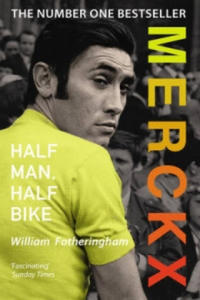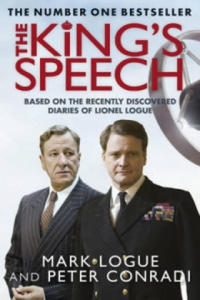libristo man who wasn t there 2933809
- znaleziono 62 produkty w 8 sklepach
Man Who Wasn't There Cornerstone
Książki / Literatura obcojęzyczna
The latest novel from internationally bestselling authors, Hjorth & Rosenfeldt, creators of hit television shows, Wallander , The Bridge and ITV's Marcella , starring Anna Friel.
Sklep: Libristo.pl
The Man Who Wasn't There
Książki Obcojęzyczne>Angielskie>Health & personal development>Self-help & personal development>Popular psychology
0x0082807e00000000
Sklep: Gigant.pl
The Man Who Wasn't There
Książki Obcojęzyczne>Angielskie>Fiction & related items>Crime & mysteryKsiążki Obcojęzyczne>Angielskie>Fiction & related items>Moder...
0x0095862200000000
Sklep: Gigant.pl
The Man Who Wasn't There
Książki Obcojęzyczne>Angielskie>Fiction & related items>Modern & contemporary fiction (post c 1945)
0x007cdef800000000
Sklep: Gigant.pl
The Man Who Wasn't There
Książki Obcojęzyczne>Angielskie>Society & social sciences>Psychology>The self, ego, identity, personalityKsiążki Obcojęzyczne>Angielski...
0x004e55f500000000
Sklep: Gigant.pl
Red Flags: How to know he's playing games with you. How to spot a guy who's never going to commit. How to force him to show his c Createspace Independent Publishing Platform
Książki / Literatura obcojęzyczna
Learn Secrets about Men And The Dishonest Games they Play That Most Women Will Never Know Most women are very surprised when a man becomes distant, when they find out he wasn't as interested as he seemed, or worse, when everything he said
Sklep: Libristo.pl
Merckx: Half Man, Half Bike Vintage Publishing
Książki / Literatura obcojęzyczna
What makes a man the greatest of all time? Eddy Merckx is to cycling what Muhammad Ali is to boxing or Pele to football: quite simply, the best there has ever been. Merckx was a machine. It wasn't just the number of victories (445); it was his remorseless domination that created the legend. He didn't just beat his opponents, he crushed them. But his triumphs only tell half a story that includes horrific injury, a doping controversy and tragedy. He was nicknamed 'The Cannibal' for his insatiable appetite for victory, but the moniker did scant justice to a man who was handsome, sensitive and surprisingly anxious. Britain's leading cycling writer, William Fotheringham, goes back to speak to those who were there at the time and those who knew Merckx best to find out what made Eddy Merckx so invincible.
Sklep: Libristo.pl
Under the Duvet Penguin
Powieści i opowiadania
'When people ask me what I do for a crust and I tell them that I'm a novelist, they immediately assume that my life is a non-stop carousel of limos, television appearances, hair-dos, devoted fans, stalkers and all the glitzy paraphernalia of being a public figure. It's time to set the record straight. I write alone, in a darkened bedroom, wearing my PJs, eating bananas, my laptop on a pillow in front of me ...' Her novels are adored by millions around the world
Sklep: Albertus.pl
Letter from America Penguin
Powieści i opowiadania
When Alistair Cooke retired in March 2004 and then died a few weeks later, he was acclaimed by many as one of the greatest broadcasters of all time. His Letters from America, which began in 1946 and continued uninterrupted every week until early 2004, kept the world in touch with what was happening in Cooke's wry, liberal and humane style. This selection, made largely by Cooke himself and supplemented by his literary executor, gives us the very best of these legendary broadcasts. Over half have never appeared in print before. It is a remarkable portrait of a continent - and a man. Fred Astaire 26 June 1987 Movie stars don't make it. Nor statesmen. Not Prime Ministers, or dictators unless they die in office. Not even a world-famous rock star, unless he's assassinated. But last Monday, none of the three national television networks hesitated about the story that would lead the evening news. On millions of little screens in this country and I don't doubt in many other countries around the world, the first shots were of an imp, a graceful wraith, a firefly in impeccable white tie and tails. And for much longer than the lead story usually runs, for a full five minutes on NBC, we were given a loving retrospective of the dead man, ending with the firm declaration by Nureyev that 'He was not just the best ballroom dancer, or tap dancer, he was simply the greatest, most imaginative, dancer of our time.' And the newsmen were right to remind us of the immortal comment of the Hollywood mogul, who, with the no-nonsense directness of an expert, reported on Fred Astaire's first film test: 'Has enormous ears, can't act, can't sing, dances a little.' That Hollywood mogul, long gone, spent his life ducking round corners, to avoid being identified as the oaf who looked in the sky and never saw the brightest star. However, that expert opinion was, as the lawyers say, controlling at the time and in Astaire's first movies, there was no thought of allowing him to act or sing. But not for long. And thanks to the invention of television, and the need to fill vast stretches of the afternoon and night with old movies, it has been possible for my daughter, for instance, to claim Fred Astaire as her favourite film star from the evidence of all the movies he made fifteen, ten, five, three years before she was born. When I got the news on Monday evening here, and realized with immediate professional satisfaction that the BBC had smartly on hand a musical obituary tribute to him I put together eight years ago, I couldn't help recalling the casual, comic way this and similar radio obituaries came about. I was in London at the end of 1979, and Richard Rodgers - one of the two or three greatest of American songwriters - had just died, I believe on New Year's Eve or the night before. Britons, by then, were getting accustomed, without pain, to making what used to be a two-day Christmas holiday into a ten-day much-needed rest. For all laborious research purposes, the BBC was shut up. And there was no retrospective programme on the life and music of Richard Rodgers in the BBC's archives. Of course, in a gramophone library that looks like an annex to the Pentagon, there were hundreds, perhaps thousands, of recordings of his songs. The SOS went out to a writer, a producer, and - I presume - a man who had the key to the gramophone library. The silent place was unlocked, and the three of them laboured through the day to put together an hour's tribute to Richard Rodgers. It was done. It was competent enough, but rushed to an impossible deadline. This hasty improvisation happened just when my own music producer and I, who had enjoyed working together for six years or so on American popular music, were wondering what we could offer next. We'd done a sketch history of jazz, through individuals. We'd gone through all the popular music of the 1920s, 1930s and 1940s, and were stumped for a new series, at which point I asked if we mightn't go and talk to the head of the channel, network or whatever. We went in, and the genial boss asked me what we had in mind. 'A morgue,' I said. A what? 'Where', I asked, 'is your morgue?' He was not familiar with the word, a newspaper term. 'Well,' I said, 'all newspapers have them.' 'How d'you mean?' 'If, I explained, 'Mrs Thatcher died tonight and you woke up and read a two-sentence obituary, you'd be rightly outraged. But if you saw a two-page obituary, you'd take it for granted. When d'you suppose it was written?' 'That's right,' he said thoughtfully. What I was proposing was a morgue of the Americans eminent in popular music and jazz, so they'd not get caught short again. A splendid idea, the man said; pick your stars. We made a list and were commissioned to return to America and finish all of them. Naturally, we looked at a calendar, and birthdates of Hoagy Carmichael, Earl Hines, Harold Arlen, Ethel Merman, Stephane Grappelli, Ella Fitzgerald. But then, in a spasm of panic, we thought of two giants - if the word can be used about two comparative midgets: Irving Berlin and Fred Astaire. Berlin was then 91. And Fred Astaire was just crowding 80. The boss man, to whom the idea of a morgue had been, only a few minutes before, quaint if not morbid, wondered what we were waiting for. Better get busy, at once, on Berlin and then on Astaire. I remember doing the Astaire obit, then and there, while I was still in London. Meanwhile, we'd simply pray every night that the Lord would keep Irving Berlin breathing till I could get home and get busy. I remember being picked up in a car by a charming young girl to get to the BBC and record my Astaire narration - there wasn't a moment to lose. She asked me, in the car, what the script was that I was clutching. 'It's an obituary', I said, 'of Fred Astaire.' 'Fred Astaire,' she shrieked, 'dead?' and almost swerved into a bus. 'Of course, he's not dead,' I said, 'but he's going to be one day.' She, too, was new to the institution of a morgue. I recalled that when I was a correspondent for a British paper in the United States, and when for example. Dean Acheson was appointed Secretary of State, the first cable I had from my editor said, 'Welcome Acheson obituary soonest.' How ghoulish, she said. I imagine that to two generations at least, it's assumed that Fred Astaire, this slim, pop-eyed newcomer to Hollywood who couldn't act, couldn't sing, danced a little, only made a fool of the mogul through the movies he made, with Ginger Rogers, in the mid- and late 1930s. But long before then, from the mid-1920s on, he was already an incomparable star - as a dancer - to theatre audiences both in New York and in London. Perhaps more in London than anywhere, certainly in the 1920s, with the early Gershwin hits, Funny Face and Lady Be Good, and lastly, in 1933, in Cole Porter's Gay Divorce (which was the title of the theatre show; Hollywood would not then allow so shocking a title and called the movie version, The Gay Divorcee). Of all the thousands of words that have been written this week, and will be written, there is a passage I went back to on Tuesday night which, I think, as well as anything I know, sums up Astaire's overall appeal - the appeal that takes in but transcends one's admiration for his dancing and for his inimitably intimate singing style. This was written in November 1933, by a theatre critic who had so little feel for dancing that he marvelled why London should go on about 'Mr Astaire's doing well enough what the Tiller Girls at Blackpool do superbly'. The critic, the writer, was James Agate, the irascible, dogmatic, opinionated but brilliant journalist, and I believe the best critic of acting we have had this century. He is writing his review of Gay Divorce, after declaring yet again his contempt for musical comedy as an entertainment for idiots, deploring the play's plot and the acting and hoping 'Micawberishly, for something to turn up'. 'Presently,' he wrote, 'Mr Fred Astaire obliged, and there is really no more to be said.' Except
Sklep: Albertus.pl
King's Speech Quercus Publishing
Książki / Literatura obcojęzyczna
One man saved the British Royal Family in the first decades of the 20th century - amazingly he was an almost unknown, and certainly unqualified, speech therapist called Lionel Logue, whom one newspaper in the 1930s famously dubbed 'The Quack who saved a King'. Logue wasn't a British aristocrat or even an Englishman - he was a commoner and an Australian to boot. Nevertheless it was the outgoing, amiable Logue who single-handedly turned the famously nervous, tongue-tied, Duke of York into the man who was capable of becoming King. Had Logue not saved Bertie (as the man who was to become King George VI was always known) from his debilitating stammer, and pathological nervousness in front of a crowd or microphone, then it is almost certain that the House of Windsor would have collapsed. The King's Speech is the previously untold story of the extraordinary relationship between Logue and the haunted young man who became King George VI, drawn from Logue's unpublished personal diaries.They throw extraordinary light on the intimacy of the two men - and the vital role the King's wife, the late Queen Elizabeth, the Queen Mother, played in bringing them together to save her husband's reputation and his career as King. The King's Speech is an intimate portrait of the British monarchy at a time of its greatest crisis, seen through the eyes of an Australian commoner who was proud to serve, and save, his King.
Sklep: Libristo.pl
szukaj w Kangoo libristo man who wasn t there 2933809
Sklepy zlokalizowane w miastach: Warszawa, Kraków, Łódź, Wrocław, Poznań, Gdańsk, Szczecin, Bydgoszcz, Lublin, Katowice
Szukaj w sklepach lub całym serwisie
1. Sklepy z libristo pl man who wasn t there 2933809
2. Szukaj na wszystkich stronach serwisu
t1=0.106, t2=0, t3=0, t4=0.029, t=0.107















